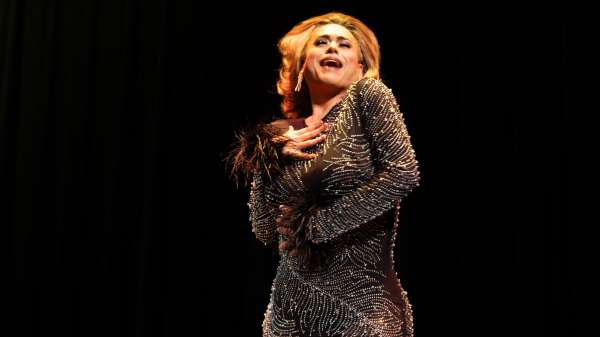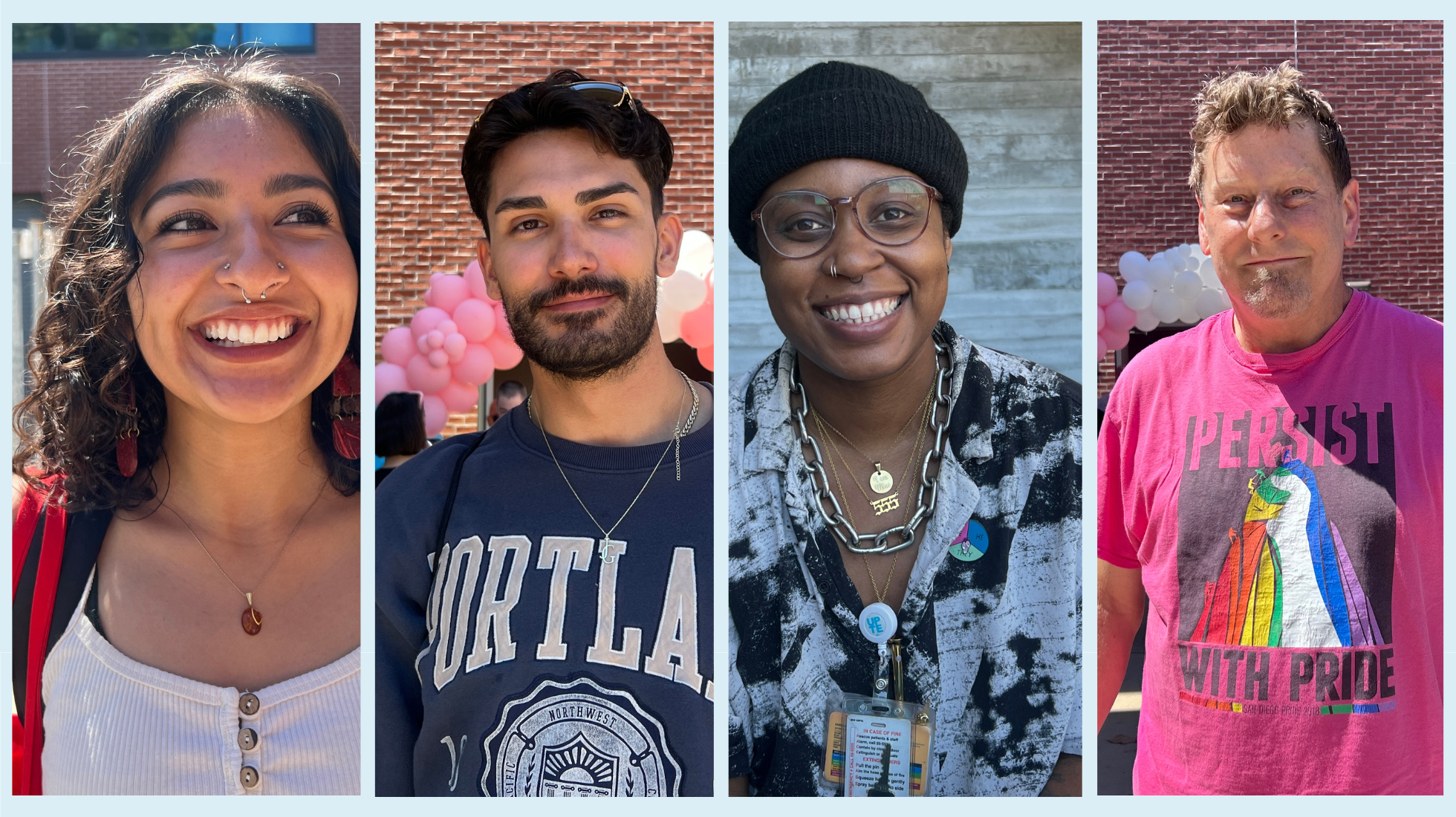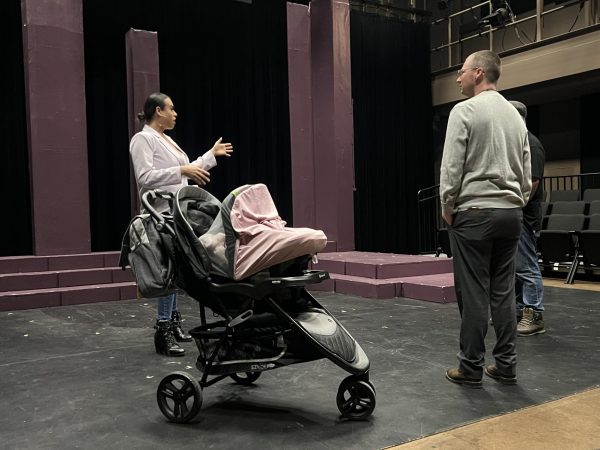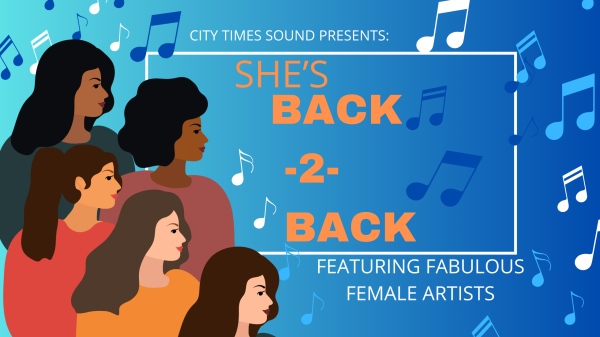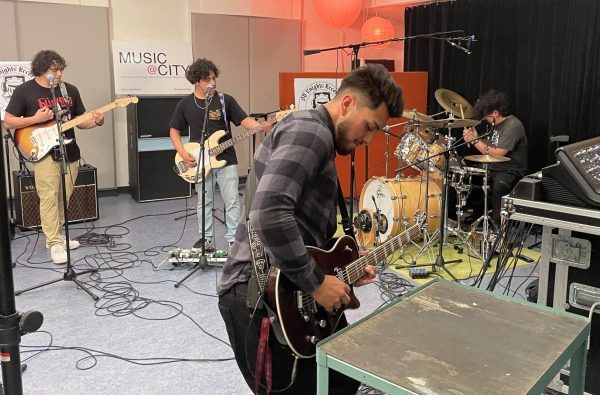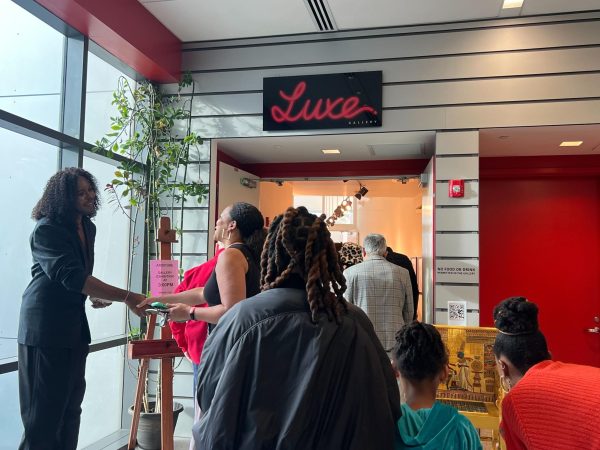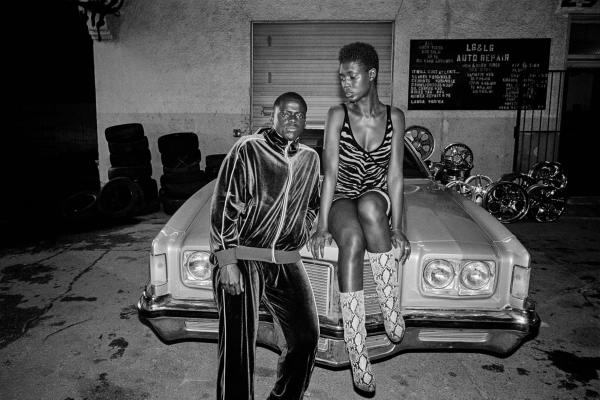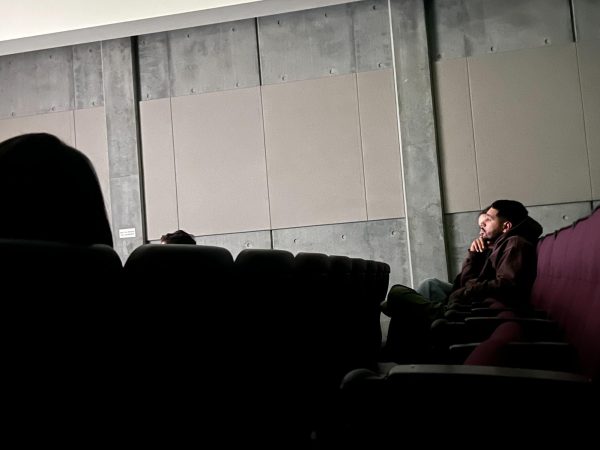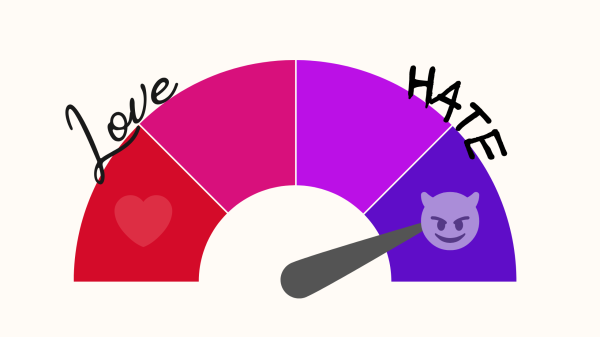Oscars don’t offer role models for City’s students
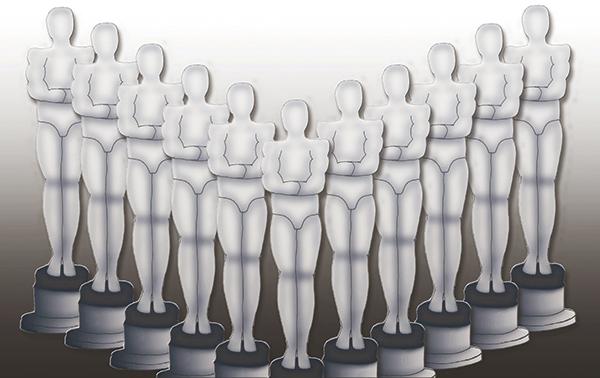
Illustration by Belinda Mendoza
February 21, 2016
The Academy Awards will be presented on Sunday, Feb. 28. All 20 nominees for leading and supporting roles are white for the second year in a row, sparking immense drama.
Will Smith, Spike Lee and Jada Pinkett Smith are planning to boycott the presentation because of the lack of diversity. A hashtag called #OscarsSoWhite has become popular.
Flash back to 2002, when Halle Berry became the first and still only black woman to win an Oscar for best actress. At the time she hoped more women of color would follow.
“To sit here almost 15 years later, knowing another woman of color has not walked through that door is heart-breaking,” she said In a recent interview at the Makers Conference in Los Angeles.
Is the lack of diversity at the Oscars affecting the City College acting community?
Visual and Performing Arts Co-Chair Katie Rodda said it doesn’t directly affect the City College theater community. “Here, we do what is called color-blind casting, where we cast the students regardless of their race. I cast the best people in the audition,” Rodda said.
“The issue I have with the Oscars this year is a lack of good role models for non-white students, which is well half of the student body. People making money and getting the Oscars don’t represent you, the City College student body,” Rodda said.
This year’s productions have four actors who represent ethnic and racial diversity: Two African-Americans, a Filipino and one who is biracial (half black and half Mexican).
“It worked out that way because they were the best people at the audition, so they were cast that way, and that represents City College,” Rodda said.
Marie Malham, a student at City College, also expressed her discontent with the Oscars’ lack of diversity. The Hollywood film industry is male-dominated, especially by white males, she said.
“We need more representation in that industry,” Malham said, adding, “More like us (diverse actors) could infiltrate Hollywood.”
City College theater director for “Almost, Maine,” Ashley Kobza, also gave her opinion.
“When you look who is voting for the Oscars, it’s about 80 percent old white men,” said Kobza “That, to me, is a problem in itself. People voting already have a lens through which they’re looking, and it’s not a diverse lens.” .
In 2012, The Los Angeles Times published a story stating the voters in the organization that presents the Oscars, the Academy of Motion Pictures Arts and Sciences, are far less diverse than the movie-going public. Oscar voters were nearly 94 per cent Caucasian, 77 percent male, blacks were about 2 per cent and Latinos less than 2 per cent, the paper reported.
Since then, the Academy has increased the number of diverse professionals invited to join the organization, including Octavia Spencer, Kerry Washington, Davis Oyelwo, and many others. Last year, the Academy invited a record of 322 new Academy members in push for more diversity.
Its president, Cheryl Boone Isaacs, said she has taken this issue very seriously and on Jan. 26, the Academy introduced a plan to improve the diversity of its membership.
“This isn’t unprecedented for the Academy. In the ‘60s and ‘70s it was about recruiting younger members to stay vital and relevant. In 2016, the mandate is inclusion in all of its facets: gender, race, ethnicity and sexual orientation. We recognize the very real concerns of our community,” Boone told US Weekly
African American comic Chris Rock will be hosting the Oscars. The public is eager to hear what he will say about the lack of inclusion among the nominees.


